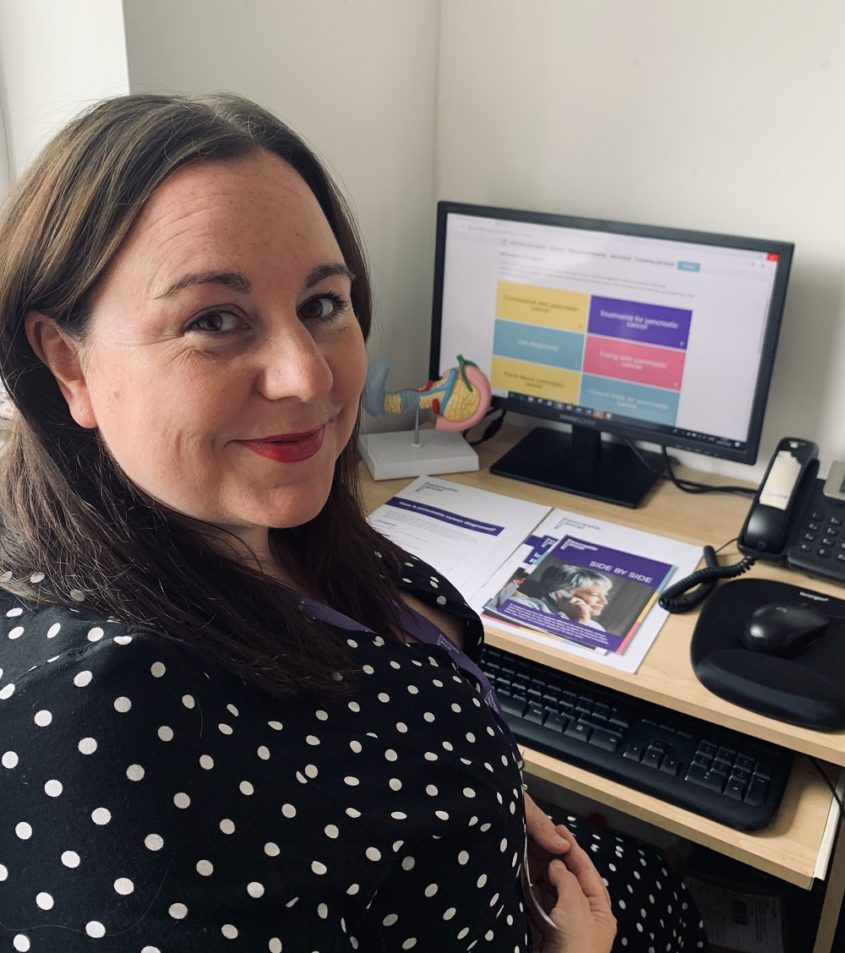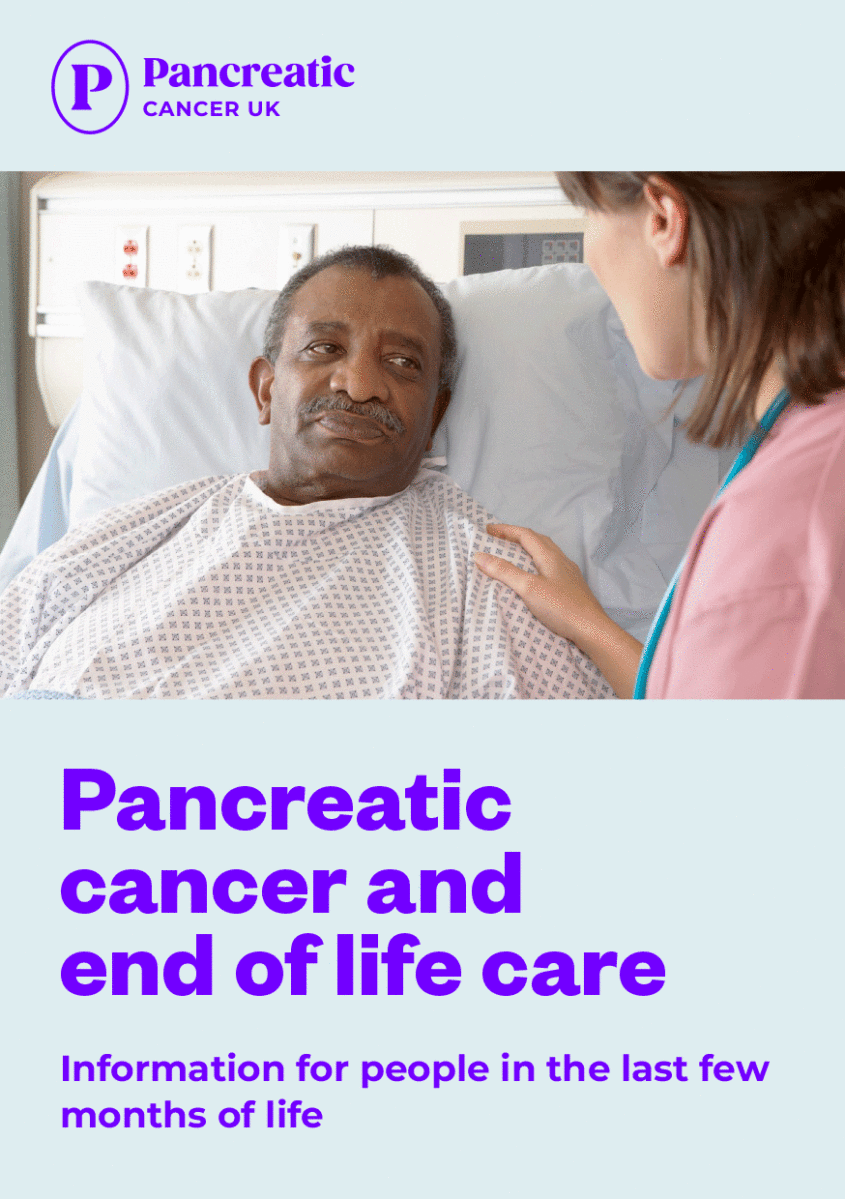Get support with ascites and oedema
Speak to your doctor or nurse if you have any swelling.
You can speak to our specialist nurses on our free Support Line with questions about ascites and oedema.
Pancreatic cancer can sometimes cause fluid to build up in the tummy area (abdomen). This is called ascites, and it can cause pain and discomfort.
You may have swelling in your tummy and you may feel full quickly when you eat. You might find it harder to move around and may get breathless. You may also find it difficult to get comfortable when lying down, or on your side. Use pillows to prop yourself up when you sleep.
If you have any of these symptoms, tell your doctor or nurse.
Depending on how well you are, the fluid may be drained off to make you more comfortable.
The fluid can build up again and you may need to have it drained more than once. Some people may have a permanent drain put in so that the fluid can be regularly drained off by the district nurse at home. This will not be suitable for everyone.
If the fluid can’t be drained off, your medical team may use a medicine called a diuretic and painkillers to help manage your symptoms. Diuretics may help reduce the fluid, although it doesn’t always make a big difference.
Fluid can also build up in other parts of your body, such as your arms, legs, feet and genitals. This can cause swelling, and is called oedema. Oedema can be uncomfortable, painful and make it harder for you to move around.
Tell your doctor or nurse if you have any swelling. They may recommend pressure stockings to help control the swelling, and suggest some exercises you can do to help the fluid drain away. Putting your feet up when you are sitting down can help. Try to have your feet higher than your hips if possible.
It is also important to look after your skin by moisturising the swollen areas. Ask your nurse what moisturiser to use. Tell them if you get any cracks in your skin in these areas.
Sometimes you may be offered medicine called a diuretic to treat the oedema, although this may not make a big difference.
Speak to your doctor or nurse if you have any swelling.
You can speak to our specialist nurses on our free Support Line with questions about ascites and oedema.


To read more about symptoms and care at the end of life, download our booklet, Pancreatic cancer and end of life care. Information for people in the last few months of life.
You can also order a physical copy.


Published August 2024
Review date August 2027